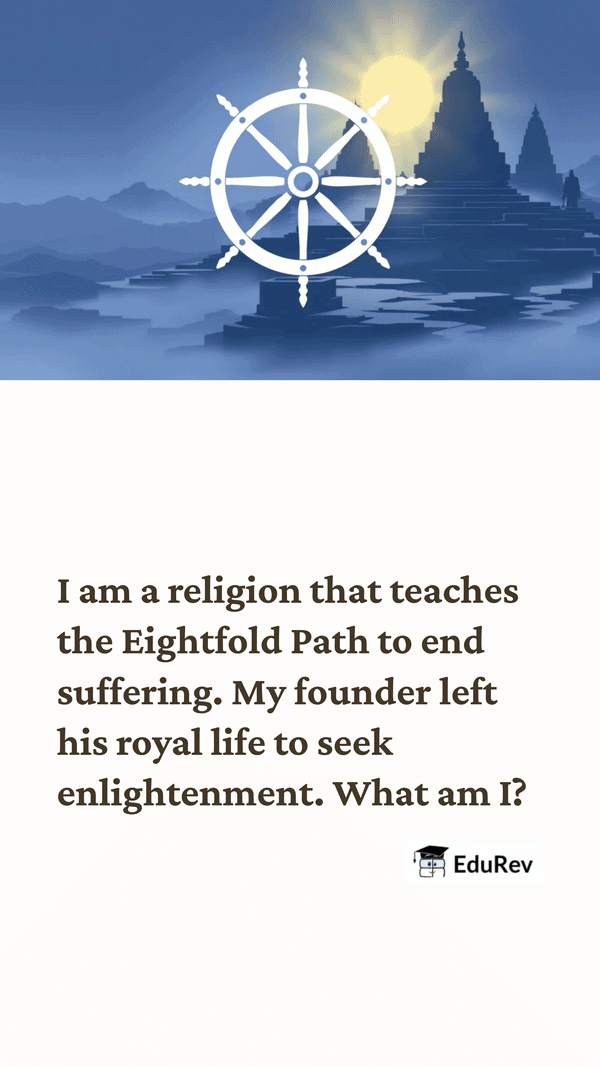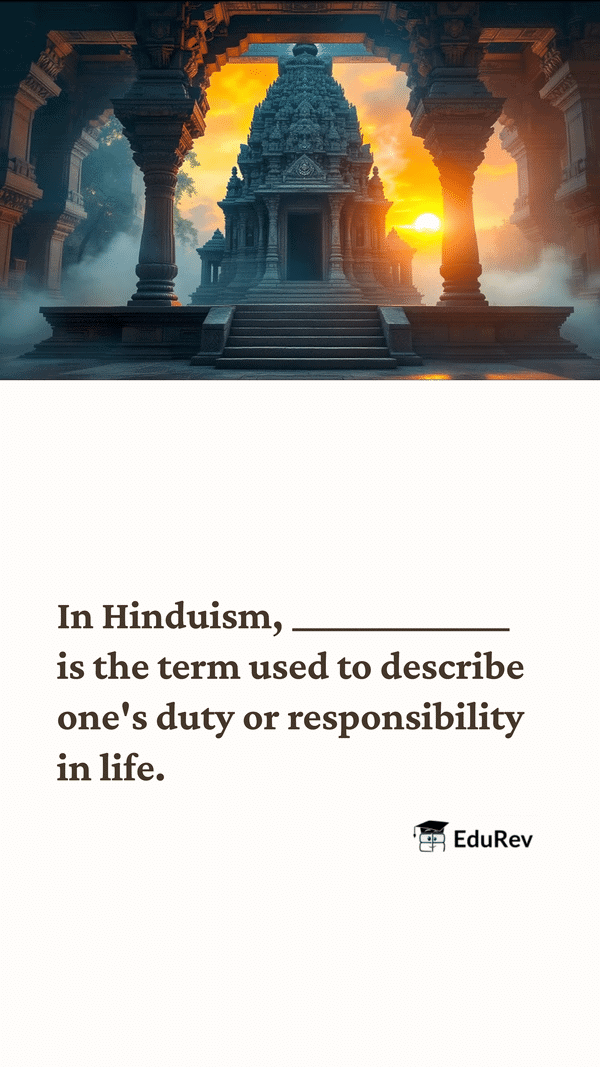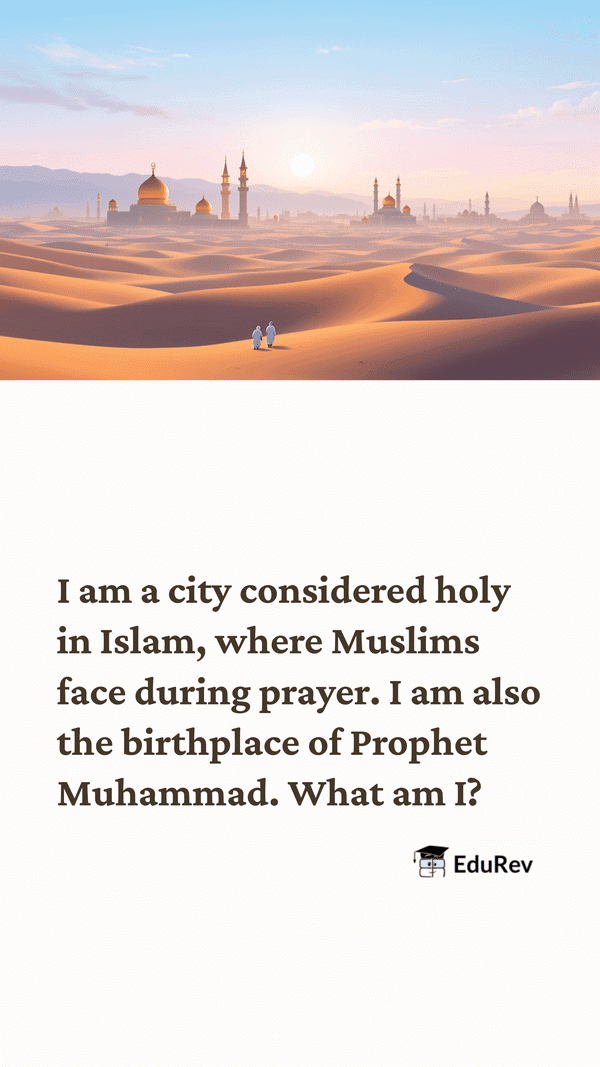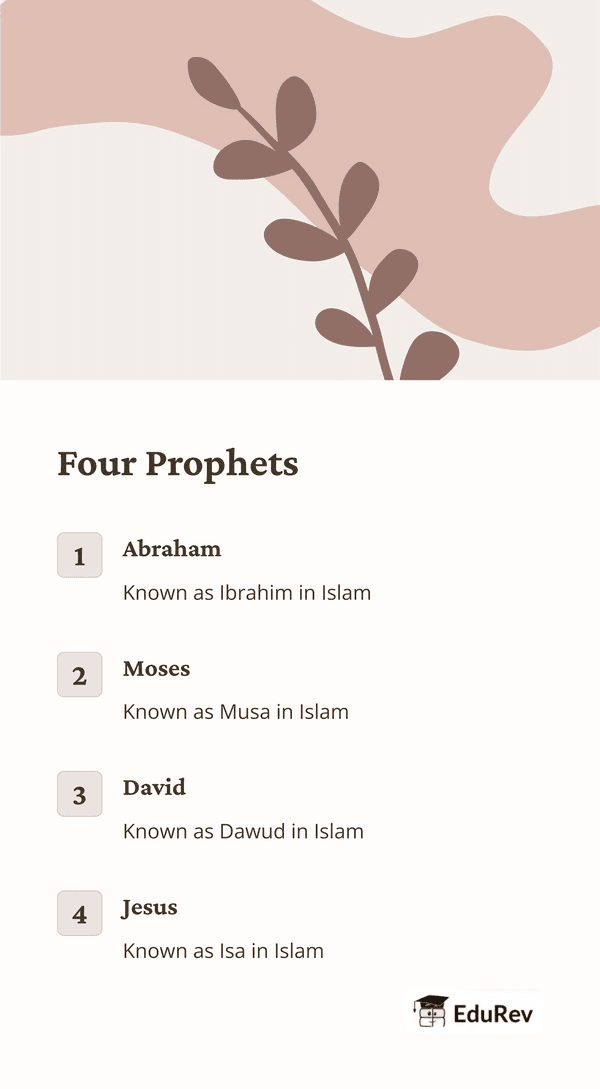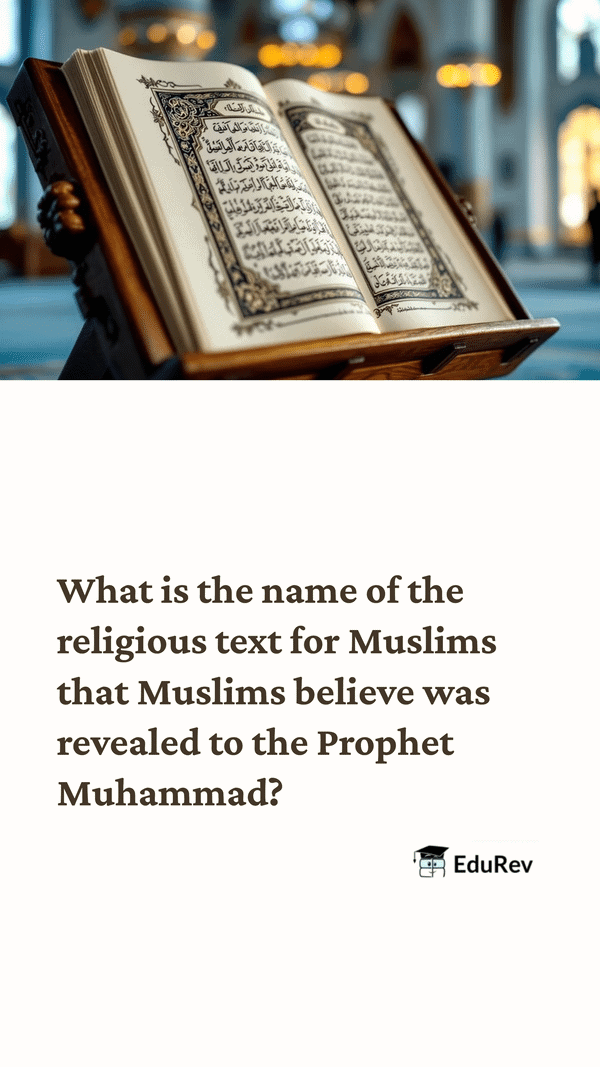 Unlock all Flashcards with EduRev Infinity Plan Starting from @ ₹99 only
|
Class 1 Exam > General Knowledge for Young Learners > Flashcards: Religions of the World
|
52 videos|107 docs|40 tests
|
FAQs on Flashcards: Religions of the World Flashcard - General Knowledge for Young Learners - Class 1
| 1. What are the major religions of the world and their key beliefs? |  |
Ans. The major religions of the world include Christianity, Islam, Hinduism, Buddhism, and Judaism. Christianity centers around the belief in Jesus Christ as the Son of God and the savior of humanity. Islam emphasizes the oneness of God (Allah) and follows the teachings of the Prophet Muhammad as outlined in the Quran. Hinduism is a diverse faith with beliefs in karma, dharma, and a multitude of deities. Buddhism focuses on the Four Noble Truths and the Eightfold Path to achieve enlightenment. Judaism is based on the covenant between God and the Hebrew people, emphasizing law, ethics, and tradition.
| 2. How do different religions view the concept of God? |  |
Ans. Different religions have varying views on the concept of God. In monotheistic religions like Christianity, Islam, and Judaism, God is seen as a singular, all-powerful entity. In Hinduism, there is a belief in a supreme reality (Brahman) that manifests in multiple deities. Buddhism takes a non-theistic approach, focusing on the pursuit of enlightenment rather than the worship of a god. Each religion's perspective on God reflects its unique teachings and cultural context.
| 3. What are the similarities and differences between Christianity and Islam? |  |
Ans. Christianity and Islam share several similarities, such as the belief in one God, the importance of prayer, and ethical guidelines for living. Both religions also honor figures like Abraham and hold sacred texts (the Bible for Christians and the Quran for Muslims). However, they differ significantly in their views of Jesus Christ; Christians believe he is the Son of God and savior, while Muslims regard him as a prophet, not divine. Additionally, the concept of salvation differs, with Christianity emphasizing faith in Christ and Islam focusing on righteous deeds and following the Five Pillars.
| 4. What role does religion play in culture and society? |  |
Ans. Religion plays a significant role in shaping culture and society by influencing moral values, social norms, and community structures. It often provides a sense of identity and belonging among its followers. Religious beliefs can affect various aspects of life, including art, music, festivals, and laws. Moreover, religion can serve as a source of comfort and purpose for individuals, while also impacting social issues such as charity, justice, and conflict resolution.
| 5. How can understanding world religions promote tolerance and peace? |  |
Ans. Understanding world religions can promote tolerance and peace by fostering respect for diverse beliefs and practices. Education about different faiths can help dispel misconceptions and stereotypes, leading to greater empathy and dialogue among people of various backgrounds. By recognizing the common values shared across religions, such as compassion and community, individuals can work together to build harmonious societies and address global challenges collaboratively.
|
52 videos|107 docs|40 tests
|
Related Searches







